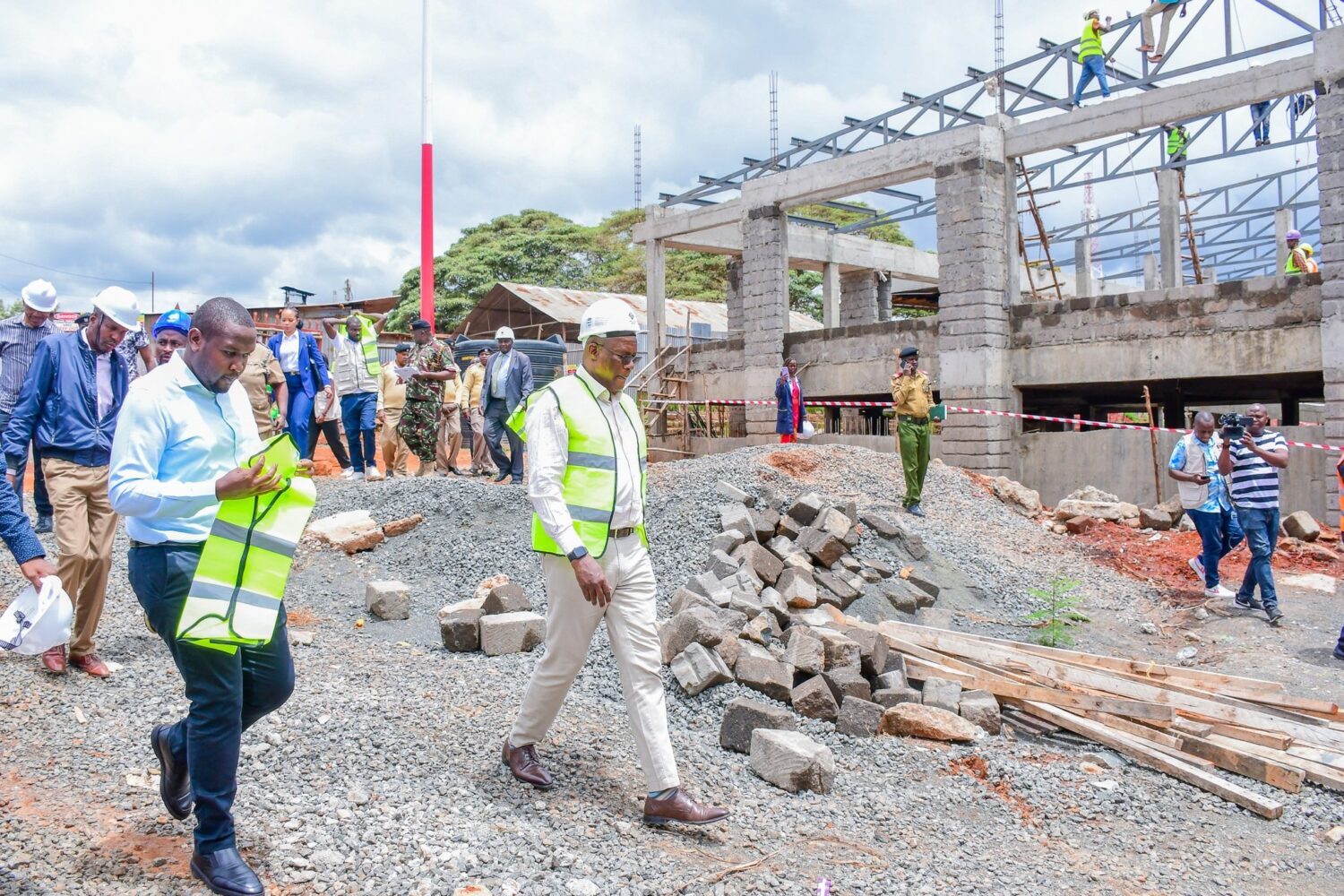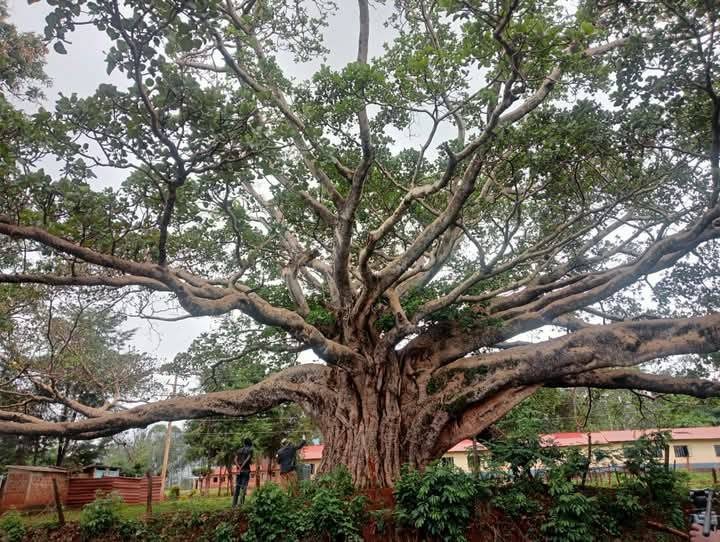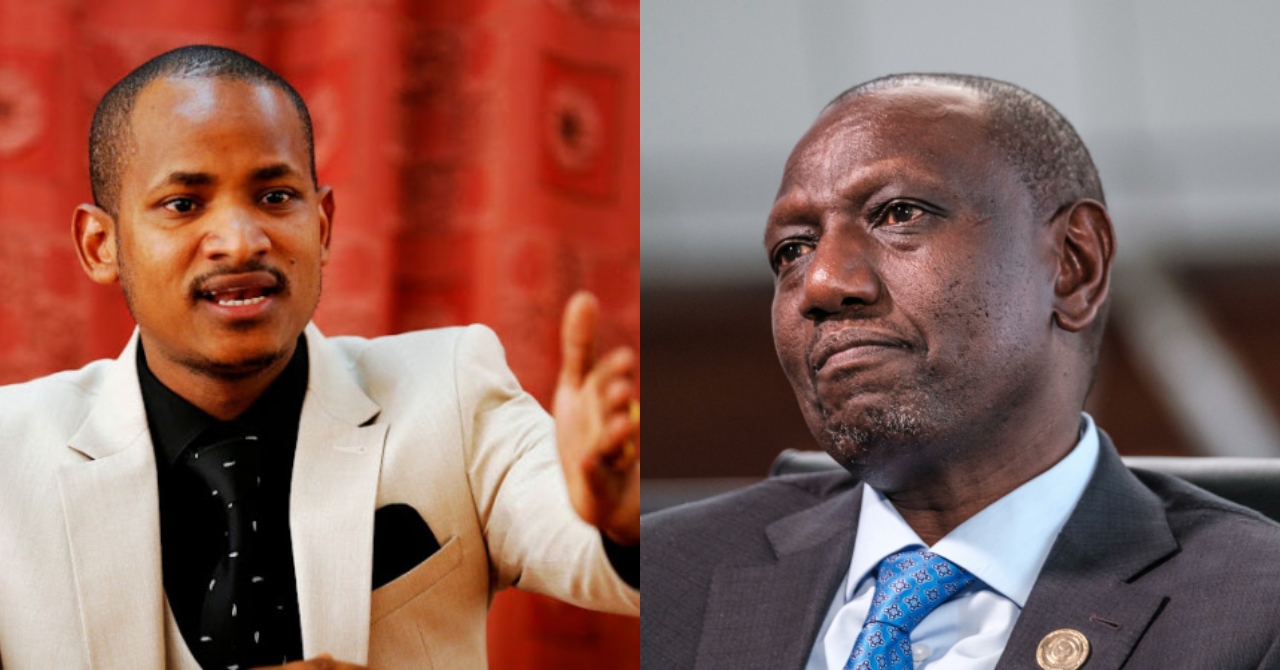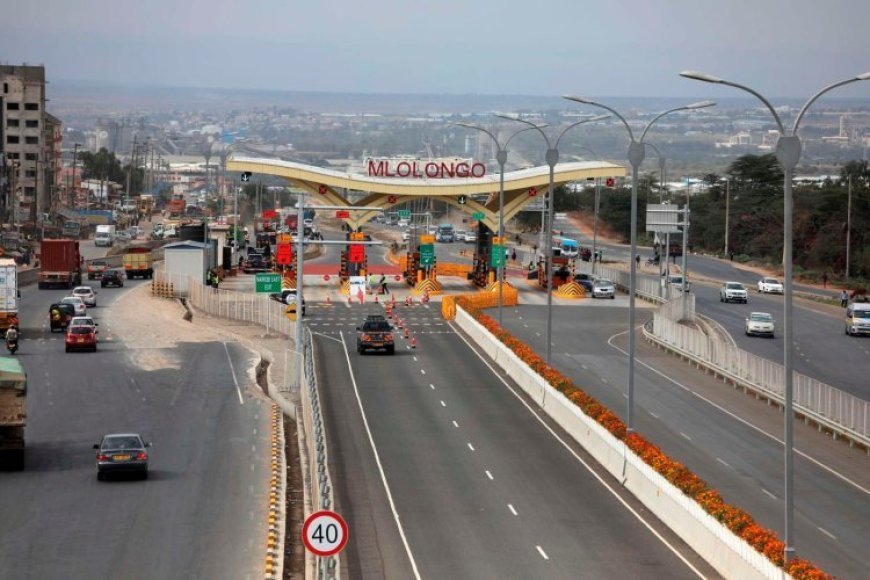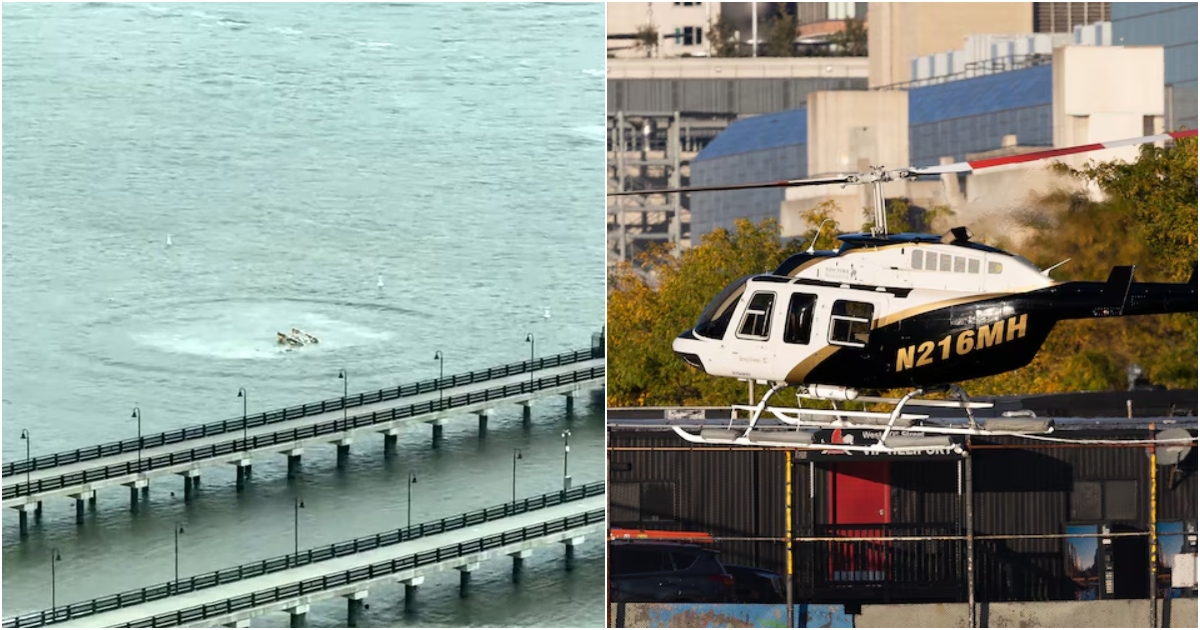The establishment of a leather tannery factory at Kenanie in Machakos County is poised to transform the livelihoods of pastoral communities in the region.
The Kenanie leather Park project, part of Kenya’s broader industrialization agenda, aligns with the government’s commitment to economic empowerment and sustainable development.
The Deputy Chief of Staff, performance and delivery, Eliud Owalo, while touring the project that is more than halfway done, reiterated the government’s dedication to completing such impactful projects, emphasizing that the government was keen on developing equitably, all parts of the Country, irrespective of politics.
Accompanying Owalo was the Water Cabinet Secretary Eric Muriithi Muuga, the CEO of the Kenya Leather development Corporation Dr Issack Noor and County Commissioner Josephine Ouko amongst other senior officials.
Economic opportunities for pastoralists
The leather tannery at Kenanie is strategically positioned to benefit pastoral communities who rely heavily on livestock for their livelihoods.
By providing a reliable market for hides and skins, the tannery will enable pastoralists to earn more from their livestock. Currently, much of Kenya’s leather is exported as raw or semi-processed material, limiting the value derived from this sector.
The Kenanie tannery will focus on value addition by processing hides and skins into finished leather products such as shoes, handbags, and garments, significantly increasing the sector’s economic output.
“This will be a one-stop shop, pastoralists will not only make money by selling their hides and skins, but will also be able to purchase finished products, from this facility,” the CEO of the Kenya Leather Development Corporation, Dr Issack Mohammed Noor added.
Kenya’s leather industry generates approximately Ksh10 billion annually, with projections indicating potential earnings could increase tenfold through value addition. The Kenanie tannery is part of a larger 500-hectare leather industrial park in Athi River, which aims to host multiple tanneries and leather value addition facilities. This initiative will not only create jobs but also enhance Kenya’s export capacity by shifting from exporting raw materials to finished goods.
Infrastructure projects supporting the tannery
To ensure the success of the tannery and other industries in the area, critical infrastructure projects are being developed. One such project is a water and effluent treatment plant also located within the facility in Machakos County. Water is essential for tannery operations, which require significant amounts for processing hides and treating effluents. The water treatment plant will ensure a sustainable supply of clean water while addressing environmental concerns through proper waste management.
The Machakos Water Supply and Sanitation Project includes constructing new water treatment facilities, rehabilitating existing infrastructure, drilling boreholes, and laying sewer lines within Machakos town. These developments will not only support industrial activities but also improve access to clean water and sanitation for local residents.
Water Cabinet Secretary Eric Muriithi Muga confirmed the government’s commitment to the facility and also gave assurances of a viable sustainable water supply that will be augmented by the drilling of boreholes that will be solarized. The establishment of the Kenanie tannery also addresses environmental challenges associated with traditional tanning methods.
The effluent pre-treatment plant is designed to manage waste generated during the leather tanning process. This facility will help maintain environmental standards while enabling cost-effective operations for businesses within the park, the CS added.
Government commitment
Deputy Chief of Staff Eliud Owalo has emphasized that the government remains committed to completing ongoing projects within stipulated timelines.
Speaking during various stakeholder forums, Owalo highlighted that these initiatives are part of President William Ruto’s Bottom-Up Economic Transformation Agenda (BETA), which prioritizes community-driven development.
Owalo’s remarks underscore the government’s focus on ensuring that projects like the Kenanie tannery deliver tangible benefits to communities. By providing employment opportunities and boosting incomes for pastoralists, these initiatives aim to reduce poverty and foster economic growth in Machakos County.
Broader impacts
Beyond direct economic benefits, these projects are expected to have ripple effects across Machakos County. Improved infrastructure will attract additional investments in agriculture, manufacturing, and trade. For instance, better water access can support irrigation schemes, enhancing food security in a region often affected by drought.
Additionally, by creating jobs in both skilled and unskilled labor categories, the projects will reduce unemployment rates and provide training opportunities for youth. The integration of housing units within the industrial park further demonstrates a holistic approach to development by addressing workers’ residential needs.
Mr Owalo also visited the Machakos School for the deaf to supervise a Safaricom Foundation and Huawei sponsored digital skilling facility at the institution. The digital application allows tutors from the Kenya Institute for Special Education to train the children virtually via the internet.
He reiterated that the government was keen to ensure that no one gets left behind in development especially the differently-abled. In conclusion, this initiative underscores the government’s commitment to inclusive development.


